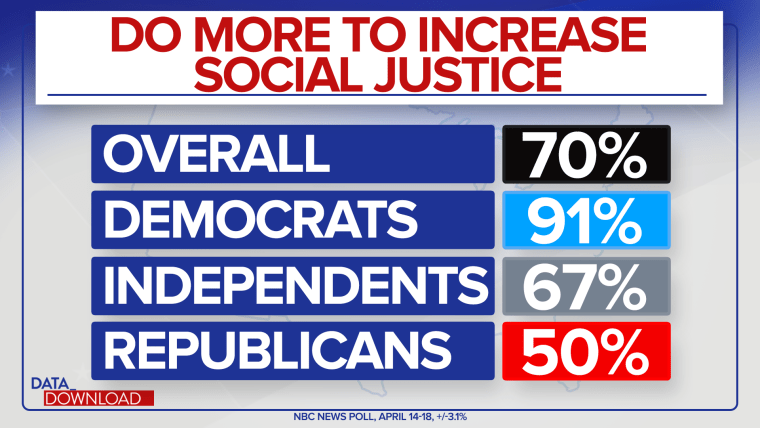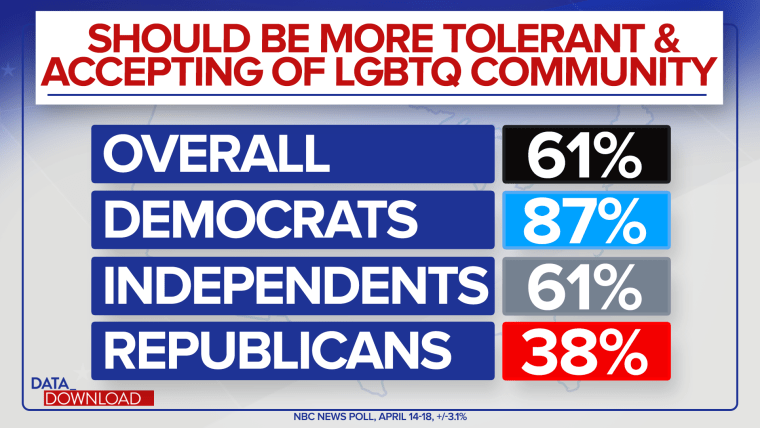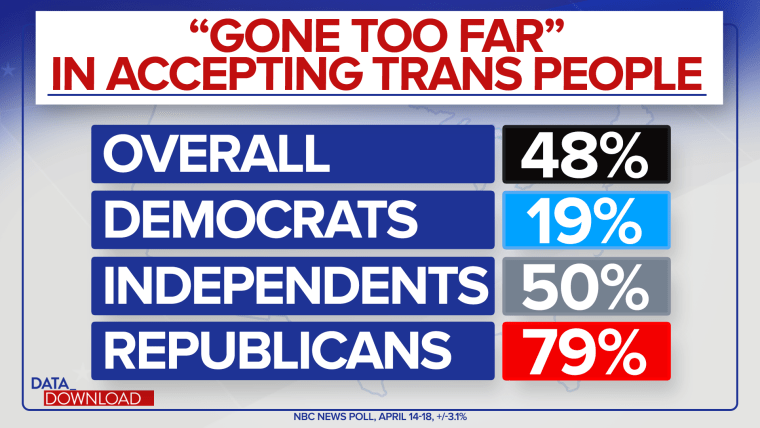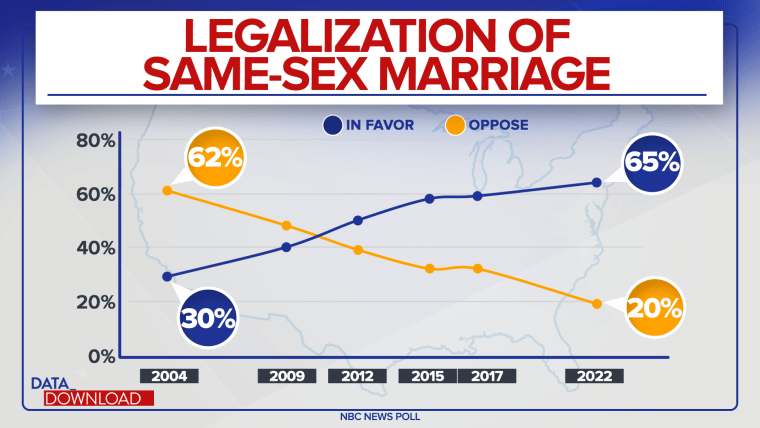WASHINGTON — For the past few years, the culture wars have been a dominant force in American politics. The debate over what kind of country the U.S. should become and how fast it should change have been themes at the national and state level.
Now, a new poll from NBC News suggests the nation might be more accepting of a need for societal change than some have theorized, at least in some areas. The numbers indicate Democrats might have an advantage on some big cultural issues with the national electorate.
One of the broad debates in politics over the past few election cycles has been over the need (or lack of need) for greater “social justice” in the U.S. Democrats have largely trumpeted the concept, while Republicans have largely criticized it as a Trojan horse for more liberal policies.
The new poll finds large support for the idea of social justice.

Overall, 70% of those polled said they believed the country “needs to do more to increase social justice.” That number is surprising. In 2023, getting 70% of Americans to agree on anything is something of a rarity, but that’s especially true for an issue many saw as polarizing.
There are, of course, splits along party lines. Among Democrats, the “needs to do more” number was a stratospheric 91%. Independents came in lower, at 67%. But even among Republicans, the idea was perhaps more popular than expected, with 50% agreeing to the idea.
The data at least suggest that phrases such as “social justice warrior," which conservatives sometimes use pejoratively, might not be resonating with the public. That’s not to say liberals have carte blanche on the idea. “Needs to do more” doesn’t mean “needs to do everything possible.” But the data suggest there is nothing inherently risky about politicians’ advocating for “social justice” — at least nationally.
That attitude is evident in other areas of the poll, as well. For instance, Americans seem supportive of increased acceptance of the LGBTQ community.

On the whole, 61% of American adults in the poll say they want the country to “become more tolerant and accepting of the LGBTQ community.” That’s obviously lower than the social justice number but still impressive.
The partisan splits are wider on this topic. For Democrats, the figure for “more tolerant and accepting” is 87%. Independents sit right at the national figure, 61%. But Republicans are far lower, with only 38% saying they want the country to become more accepting of the LGBTQ population.
The numbers suggest the issue could be a complicated one in 2024. Republican candidates might see an advantage in opposing greater LGBTQ tolerance in their primaries to appeal to GOP voters, but if and when they reach a general election, those stances could be a problem. That depends on the specific race and electorate, of course, but the differences in attitudes between Republican-leaning adults and the rest of the population are stark.
There might be at least one culturally divisive area in which Republicans hold a small advantage: how the nation feels about the transgender population.

The poll found a small plurality of those surveyed believed “we have gone too far in accepting transgender people.” In total, 48% in the poll said they agreed with that statement, while 43% said the nation has “gone far enough in ending discrimination against transgender people” — a 5-point gap.
And the partisan splits on this question were particularly sharp. Only 19% of Democrats in the poll said they thought the country had “gone too far” in accepting trans Americans. For independents, the number was 50%. And among Republicans, the number was much higher, at 79%.
The data suggests Republican candidates have an issue that might be able to motivate their base and probably not hurt them in the general election, but the larger point in the numbers may be their unsettled nature. The poll numbers slightly lean toward “gone too far,” but not decisively. Ultimately, the power of the issue is likely to be tied to the specific electorate in question and how far it leans Republican.
And, as a reference point, the unclear attitudes about accepting transgender Americans look somewhat similar to another recent issue over which attitudes shifted quickly, gay marriage.

Less than 20 years ago, those surveyed in the NBC News/Wall Street Journal poll opposed same-sex marriage by more than 30 points — only 30% favored allowing it, while 62% opposed it. Those numbers are more negative than the current attitudes toward transgender Americans.
The climb to acceptance of gay marriage happened steadily and quickly, however. By last year, the numbers had more than reversed, with 65% saying they favored allowing it and only 20% opposing. It’s a reminder that American cultural attitudes aren’t set in stone, particularly in the evolving areas of gender and sexuality.
But the larger message in the latest NBC News poll may be about the power of the “culture wars” as 2024 approaches. Issues like “social justice” and LGBTQ and trans rights might be big in the political conversation, but their influence on the electorate is far from clear.